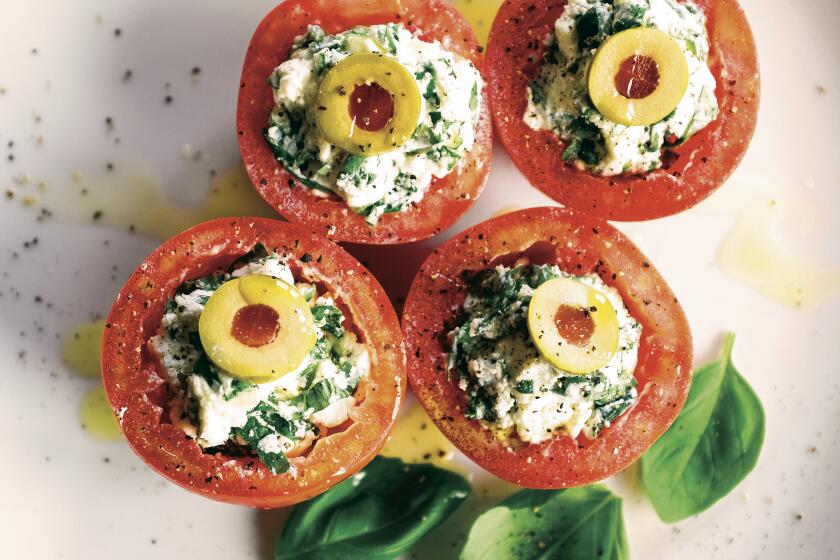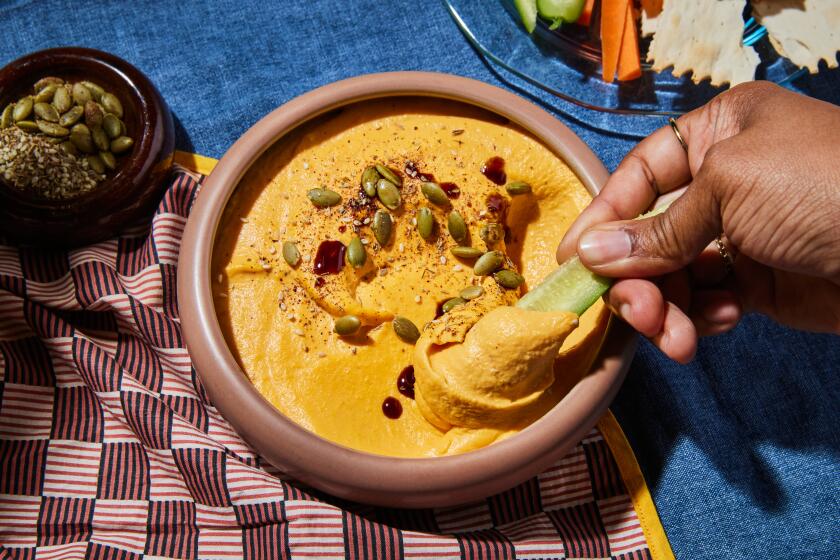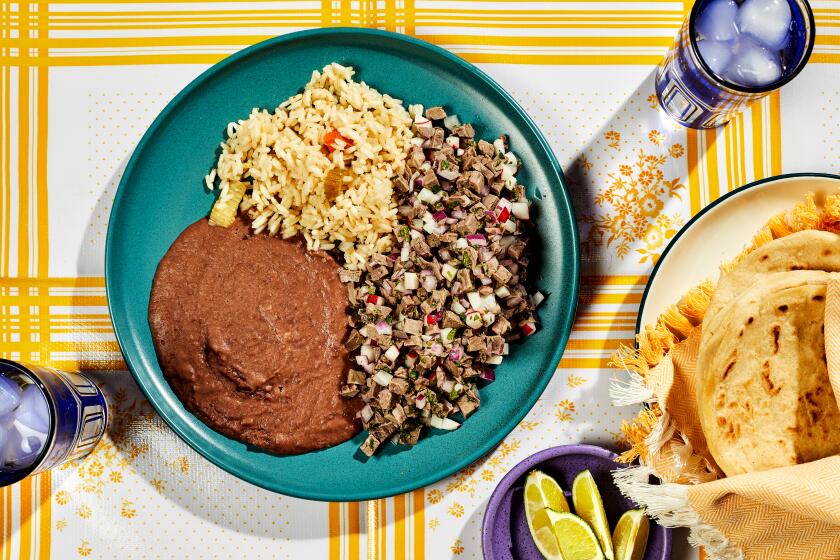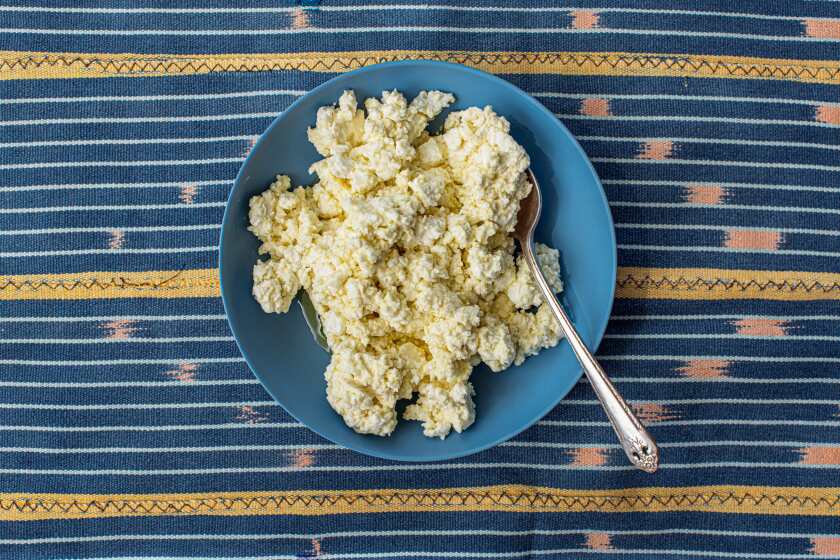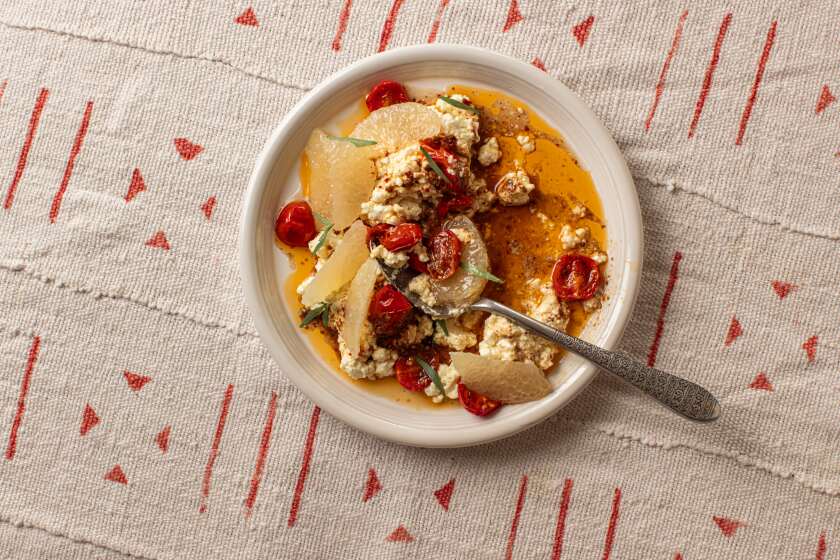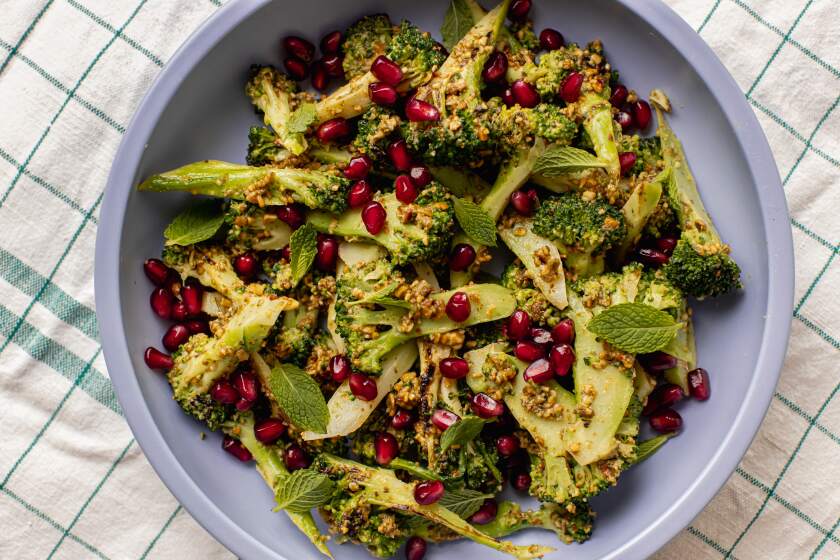Charles Namba's Gyoza Two Ways
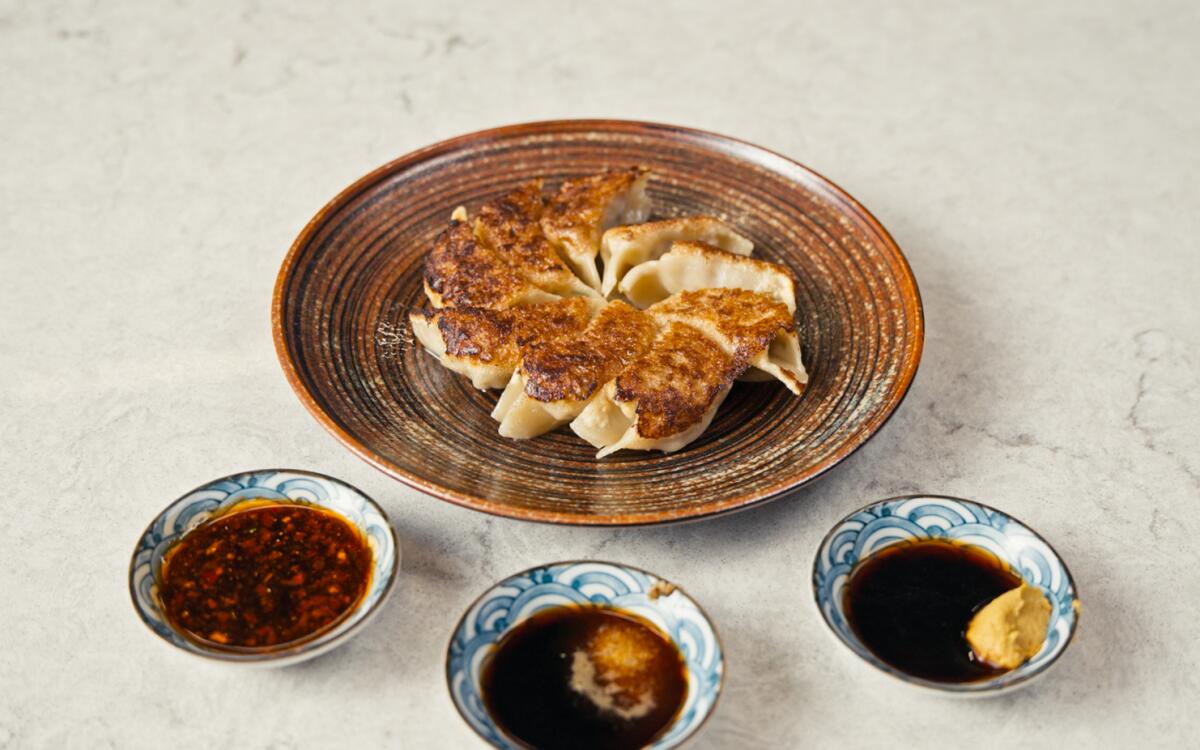
- Share via
Charles Namba is the chef and co-owner of Tsubaki and Ototo, a modern izakaya and its next-door sake bar, in Los Angeles. He grew up eating the Japanese dumplings gyoza. “It’s always been around throughout my life,” he says. “My dad still makes it, my mom makes every other week, basically.”
These gyoza can be pan-fried or boiled. “I always prefer the pan-sautéed because you get crispy and then you get a little bit of steamed” in each bite. For its dipping sauce — called “Boss Sauce” — he makes his own chile oil, mixed with rice vinegar, soy sauce, sansho pepper and broad bean paste. Or serve with soy sauce and Japanese hot mustard.
This recipe makes more Boss Sauce than you will need for the gyoza. Save for another use; store in a covered container in the refrigerator for up to 4 weeks.
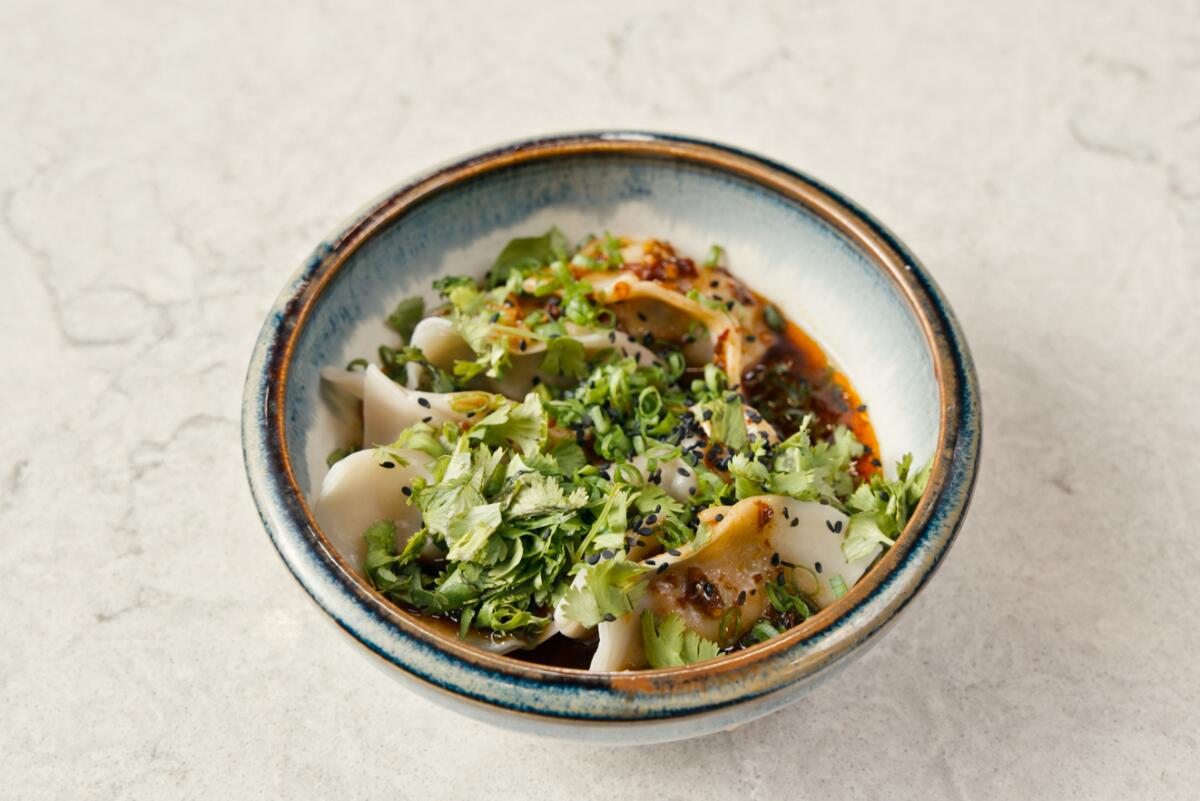
Gyoza
Make the gyoza filling. Finely dice the cabbage, then put it in a bowl along with 1 teaspoon of the salt, mixing well with your hands. Set aside (the salt will draw out moisture).
In a separate large bowl, combine the pork, the remaining 2 teaspoons of salt, chopped garlic chives, ginger, garlic, soy sauce, sesame oil, sugar and white pepper.
After the cabbage has rested for five minutes, put all of it into a clean kitchen towel, then squeeze out the excess water. Add the cabbage to the rest of the filling ingredients. Using a wooden spoon or your hands, vigorously mix the ingredients for five minutes until the mixture emulsifies; it should be sticky.
Fold the gyoza. Have a small bowl of water ready for sealing the dumplings. Take one gyoza wrapper and put one tablespoon of filling in the middle. Dip a finger in the bowl of water and draw a circle around the outer one-fourth-inch of the wrapper until it’s moistened all around the edges.
Fold both sides of the wrapper to create a half-moon or taco shape, pinching the top middle of the wrapper together (you’re not sealing the edges yet, just getting ready to pleat). Using your thumb and index finger, pleat the wrapper from the center, creating pleats about one-fourth-inch apart. As you fold, press the pleats tightly together.
Set the dumplings on a plate as you go and cover with a damp paper towel so the dumplings don’t dry out, then repeat with remaining filling and gyoza wrappers.
For yaki gyoza (pan-fried dumplings): Heat one tablespoon of toasted sesame oil in a nonstick pan over medium heat, then add the dumplings flat side down — enough gyoza to fill the pan in concentric circles. After a couple of minutes, check the bottom of one gyoza to see if it has browned. Once the base of the gyoza is a nice golden brown, use a spatula to hold the gyoza in place while tilting the pan over a bowl to drain excess oil. Add one-fourth cup of water to the pan and cover to steam the gyoza for three or four minutes; remove the lid and add two teaspoons of oil back to the pan to toast for a minute. Remove to a plate. Repeat until all of the gyoza are cooked.
Alternatively, you can boil the gyoza. For sui gyoza (boiled dumplings): Fill a medium pot halfway with water and bring it to a boil. Add six or seven gyoza to the water and simmer for 4 or 5 minutes. Remove to a plate using a slotted spoon.
Serve with a side of Boss Sauce.
Chile oil
In a saucepan, combine the canola oil, sesame oil, star anise, coriander seeds, Sichuan peppercorns and cardamom pods. Heat the mixture, initially over medium heat, until the temperature reaches 225 Fahrenheit on an instant-read thermometer. As the oil comes to temperature, reduce the heat to medium-low or low and “simmer” for 30 minutes (you will see small bubbles rising slowly from the aromatics; if the spices are sizzling vigorously, reduce the heat).
Place the chile flakes in a large, heat-proof bowl. Carefully strain the oil through a sieve over the chile flakes. Let cool. Store in an airtight container in the refrigerator.
Boss Sauce
Mix the chile oil with the rice vinegar, soy sauce, sugar, sansho pepper and tobanjan. (Reserve any leftover Boss Sauce for another use; store covered in the refrigerator for up to 4 weeks.)
Get our Cooking newsletter.
Your roundup of inspiring recipes and kitchen tricks.
You may occasionally receive promotional content from the Los Angeles Times.










